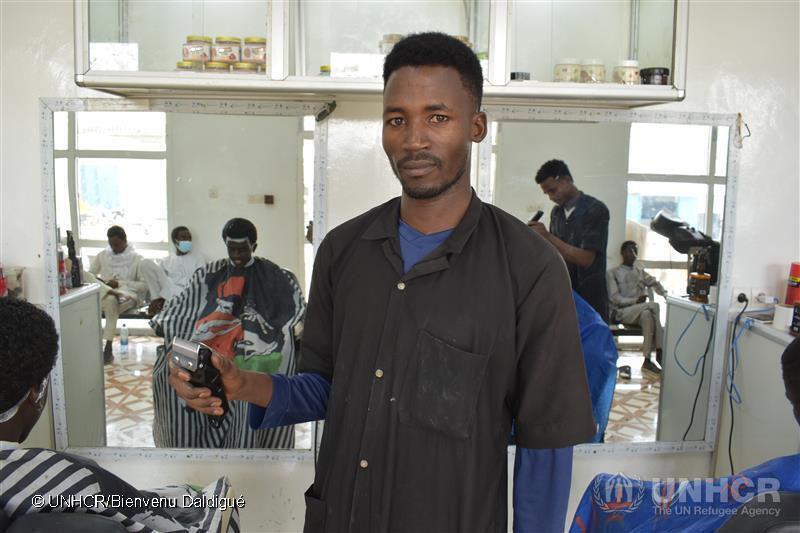Data, Dialogue and Development:
The Crucial Role of Data in Addressing Forced Displacement in West and Central Africa.
By Abdouraouf Gnon-Konde, Director of the Regional Bureau of UNHCR for West and Central Africa
Next month, I will speak at the Joint Data Center’s 3rd Research Conference on Forced Displacement in Abidjan (Côte d’Ivoire), to highlight the impact that academic research can have on our operations and organizations, and to connect researchers with policymakers.
This is a unique event dedicated to socioeconomic research in the area of forced displacement, where we are seeing a significant increase in the demand and volume of research in recent years. I am grateful to the World Bank-UNHCR Joint Data Center on Forced Displacement for their initiative.
It is timely that this event is taking place in West and Central Africa, a region where forced displacement has increased from 7.5 million in 2018 to 13.7 million today, with individuals remaining displaced for an average of 20 years. This protracted displacement overlaps with new displacement, often multiple times, demanding an evidence-based response.
As funding declines and needs escalate, the urgency to collaborate with partners — including governments and humanitarian and development partners — to find solutions to forced displacement, has never been greater. In this context, data becomes indispensable.
Academic research and data are central to our understanding of the evolving needs of forcibly displaced people, and the interventions that comprehensively address these needs. The methodologies and insights of academic research provide a foundation upon which governments, humanitarian and development actors can build effective and sustainable responses. These same methodologies can be used to produce analysis that has real impact, and we have seen some profound examples of this in West Africa, many of which are the result of our partnership with the World Bank.

Nousradine Moussa Hissein is a 28-year-old Sudanese refugee from the Djabal camp in Chad. He has been employed as a hairdresser by a Chadian for the past 3 years, a job that enables him to look after his wife, his parents and his younger children who live in the camp.
The Chadian government has used socioeconomic data to assist refugees and host communities for the last six years. Last year, when faced with an increasing influx of Sudanese refugees, they sought to integrate refugees and their hosts into development programs.
The first poverty assessment in the Central African Republic includes data on internally displaced people which was collected by the World Bank and funded by the Joint Data Center on Forced Displacement. The result is that these people are systematically included in development policy and plans going forward.
The government of Cameroon signed a Memorandum of Understanding with UNHCR last year to include refugees in the next national census. We are also conducting a Forced Displacement Survey there, which includes data on refugees and host communities that is critical for policy and operations.
In Burkina Faso, we are conducting an exercise that will integrate protection monitoring with socioeconomic data – the first project of its kind. This data and analysis provides critical insights that inform UNHCR’s strategies and sustainable programming in the region. Academic research can do the same, which is why this conference is so important for colleagues working in the humanitarian and development nexus.
By continuing to champion research-driven initiatives that are relevant to policy and operations we can ensure that the needs of forcibly displaced people are met sustainably, paving the way for long-term solutions to protracted displacement.
My three guiding principles for UNHCR to take forward our work in this region are: Data, Dialogue, and Development and I am looking forward to the Research Conference on Forced Displacement where all three will come together.
In Burkina Faso, we are conducting an exercise that will integrate protection monitoring with socioeconomic data – the first project of its kind.
This data and analysis provides critical insights that inform UNHCR’s strategies and sustainable programming in the region. Academic research can do the same, which is why this conference is so important for colleagues working in the humanitarian and development nexus.
By continuing to champion research-driven initiatives that are relevant to policy and operations we can ensure that the needs of forcibly displaced people are met sustainably, paving the way for long-term solutions to protracted displacement.



